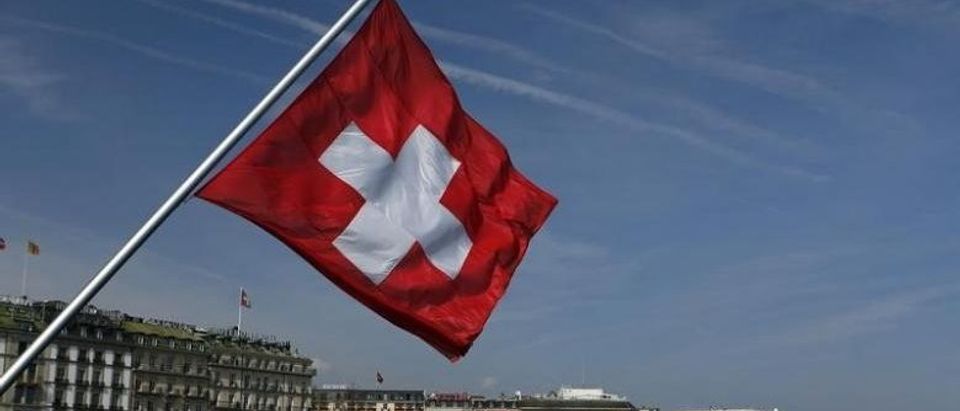“What’s the best country?”
The New York Times earlier this month ran a story about the recently released U.S. News best countries ranking. Unsurprisingly for those who have lived and worked there—Switzerland was ranked #1. Another un-surprise–the United States was ranked #7. The writer for The New York Times predictably attributed the U.S. slide to President Trump, despite the fact he has been in office less than 3 months.
But if we are willing to look elsewhere–and admit that maybe a new Dark Age of Trump has not suddenly succeeded a Golden Age of Obama/Clinton (the U.S. stock market doesn’t seem to think it has)–perhaps it might dawn on us that the new administration is actually trying its best to put into practice some lessons, maybe derived from the Swiss, that could better serve us the next time U.S. News gets around to doing its survey.
Between Switzerland and the U.S., which country is typified by the following?
- a bloated and power-hungry federal bureaucracy
- massive federal deficits
- a crumbling infrastructure
- unwieldy and expensive health insurance (“Well, no, you can’t keep your doctor . . . “)
- addiction to repeated Keynesian economic stimuli
- intrusive and arbitrary regulations written by unelected officials
- high corporate taxes
- globalism, multilateralism, and open borders
- indifference to the rule of law or will of the voters
- the notion that wealth is created with a printing press
If you guessed the United States, you get a gold star!
In contrast, Switzerland is typified by:
- a small federal government with limited powers. How so? The Swiss Constitution contains provisions equivalent to our reserved powers clause. If a power isn’t explicitly defined as federal, it belongs to the cantons (the Swiss equivalent of our states).
- fiscal responsibility. The Swiss Constitution includes a mechanism known as the “debt brake” which places strict limits on the scale of possible deficits and obligates the federal government to equilibrate these over time. Usually, the Swiss federal government runs a surplus, some of which is set aside in reserves for off years.
- the 3 R’s of infrastructure: repair, renew, replace—on schedule. In Switzerland one soon learns that even that which looks old—say, a quaint funicular—has modern innards, and skiers don’t have to be phobic about chairlifts–cables are replaced regularly.
- rational health-care policy. While the Swiss choose to spend generously on health care, the Swiss system provides for broad consumer choice in medical providers and insurers.
- prudent economic and monetary policy. Swiss policy-makers understand the fatal flaw in economic policies that rely on constant stimulus packages: people anticipate the next stimulus and build that into economic decisions. A headache for the Swiss central bank is that people around the world recognize Swiss prudence and hoard francs—even when they have to pay negative interest to the banks that hold them.
- a business-friendly environment. Switzerland welcomes business initiative and enterprise. Corporate taxes are low. There is broad understanding that thriving businesses make for a thriving country.
- a balance between globalism and patriotism. The Swiss cherish their sovereignty. There won’t be a “Swexit” because the Swiss never joined the EU. The Swiss engage in the world–they trade and travel in every corner of the globe. And because of public skepticism about multinational organizations, the Swiss are expert at crafting bilateral agreements.
- respect for the rule of law. Although there is always an individual who serves as Switzerland’s titular president, executive authority resides in a committee of seven from parties across the political spectrum called the Federal Council. They fiercely adhere to the idea that they serve the sovereign (the people of Switzerland) and are not above the law.
Some may find ironic that an extrovert with a big and brash personality is, in the United States, implementing an agenda that so closely parallels the Swiss formula for success. But the facts speak for themselves.
Donald Trump has been clear: he aims to reduce the scope and scale of the federal government, to reduce corporate taxes, to put the regulatory leviathan of Washington on a crash diet, to renew the American infrastructure. And he is devoted to preserving America’s sovereignty and securing her borders; he has also nominated to the Supreme Court a judge who will embrace the clear meaning of the reserved powers clause and help restore Constitutional governance. To the extent that President Trump succeeds in implementing his agenda, our odds of competing for the top slot with Switzerland in future in the U.S. News rankings might skyrocket! But then that might be good – for both the United States and Switzerland.
Ambassador Faith Whittlesey served as U.S. Ambassador to Switzerland from 1981 to 1983, and again from 1985 to 1988. Between her terms as Ambassador, she served as a Member of the White House Senior Staff for President Ronald Reagan.
Doug Sears is a former U.S. Foreign Service Officer and current Board Member of the American Swiss Foundation.


